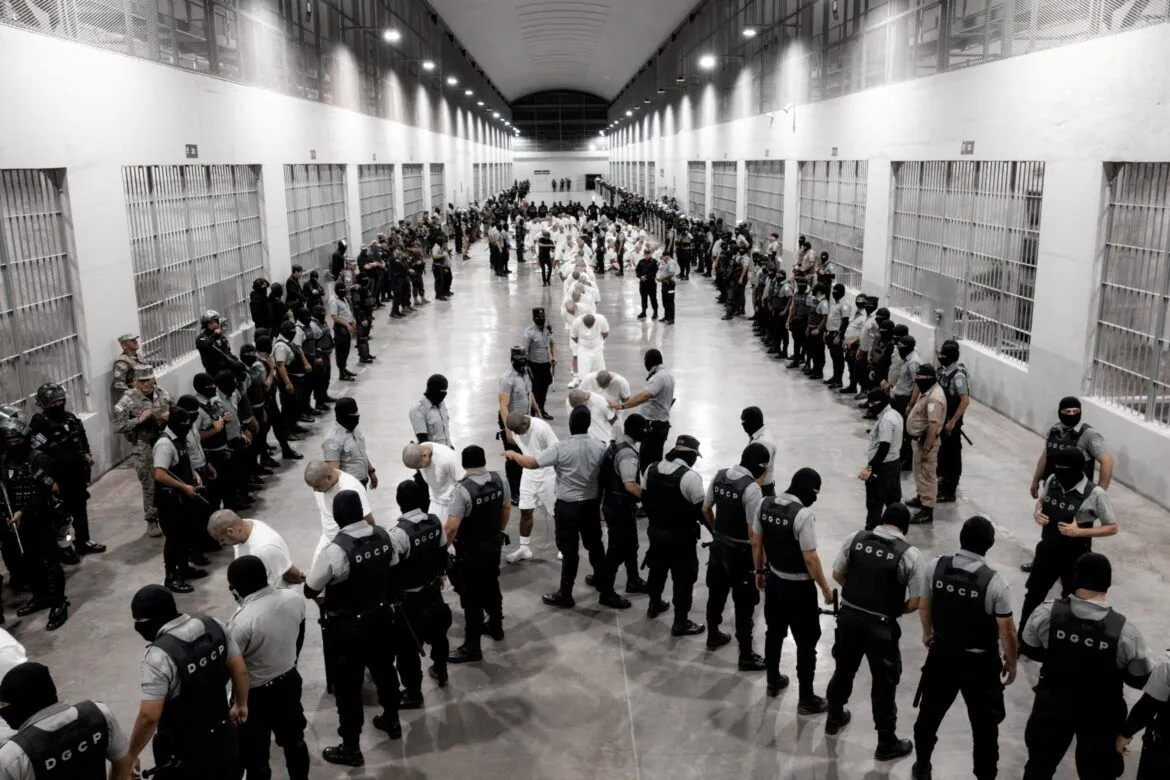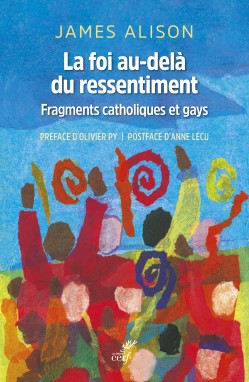Friends and family of a gay Venezuelan man deported to a notorious prison in El Salvador under the Trump administration’s aggressive deportation policies say that he was wrongfully identified as a member of a vicious gang because of his tattoos, which they say actually pay homage to a Catholic religious festival in which he had participated.
Andry José Hernández Romero, 30, worked as a makeup artist for a Venezuelan state-run television station before fleeing to the United States last year, citing discrimination due to his sexual orientation and his opposition to Venezuela’s president, Nicolás Maduro. Mr. Hernández, whom a close friend described as “calm, kind and humble,” left Venezuela last May, seeking asylum in the United States as part of the CBP One program launched by then-President Joe Biden. But during a physical exam as part of his asylum application, border officials near San Diego noted his two crown tattoos, saying they were indicative of gang membership.
“The crown has been found to be an identifier for a Tren de Aragua gang member,” one officer wrote in a report. On Friday, USA Today reported that an officer involved in Mr. Hernández’s deportation is a disgraced former Milwaukee police officer who was fired after driving his car into a house while intoxicated. Because of that report, Mr. Hernández remained in a U.S. detention center for several months before being moved last month, along with hundreds of other Venezuelan inmates, to El Salvador’s “terrorism confinement center.”
Friends and family of Mr. Hernández say that he is not a criminal and they are urging the Trump administration to have him released from prison. But the White House refuses to budge, with several high-ranking officials standing by the deportations and a cabinet secretary saying the detainees should spend the rest of their lives there.
Mr. Hernández, who has no criminal record, was active in a popular celebration of Three Kings Day in his hometown of Capacho. That festival, observed each January and popular in many Hispanic cultures, recalls the story from Matthew’s Gospel of the three Wise Men who brought gifts of gold, frankincense and myrrh to the infant Jesus.
Mr. Hernández became active with the festival as a child, The Guardian reported earlier this month. At age seven, he was a “Mini King,” part of his town’s youth drama guild. He stayed involved in the festival, helping to design and create costumes, participating as an actor and eventually helping with hair and makeup. Many participants grow up and get tattoos of crowns to commemorate the festival, the article said.
The tattoo artist who inked Mr. Hernández’s crowns told NBC News that crowns were a popular trend at the time but were especially meaningful to Mr. Hernández because of his involvement in the festival. Above each crown is scripted “mom” and “dad.”
The tattoo artist who inked Mr. Hernández’s crowns told NBC News that they were especially meaningful to him because of his involvement in the Three Kings festival.
An organizer of the Three Kings Day ceremony in Mr. Hernández’s hometown agreed that the tattoos are unrelated to Tren de Aragua, a view shared by experts on gang insignia.
“Most Capacheros get crown tattoos, often adding the name of their father or mother. We’ve lots of people with these tattoos. It’s a tradition that began in 1917,” Miguel Chacón, president of Capacho’s Three Kings Day foundation, told The Guardian.
Earlier this year, President Trump invoked the Alien Enemies Act of 1798 in order to expedite deportations without granting due process to alleged criminals. The administration also struck a deal with El Salvador President Nayib Bukele to pay $6 million to house prisoners in a newly built prison called the Terrorism Confinement Center, known as CECOT.
The administration has faced several legal challenges over its removal of Venezuelan asylum seekers, with some court observers condemning the way that border control officers have determined who is a suspected gang member. A recent investigation by CBS News found that 75 percent of the 238 people sent to the El Salvador prison had no criminal records.
At least one person was sent by mistake.
A CBS News investigation found that 75 percent of the 238 people sent to the El Salvador prison had no criminal records.
Kilmar Armando Abrego Garcia, who is married to a U.S. citizen and who is a father to a young child, was sent to CECOT on March 15. The Trump administration has admitted that Mr. Abrego’s deportation was a mistake—his immigration status allowed him to remain in the country—but it has appealed court rulings saying that he should be returned to the United States. The Supreme Court said on Thursday that the government must take steps to return Mr. Abrego to the United States.
Yesterday, Homeland Security Secretary Kristi Noem said after a tour of the prison that those sent there by the United States should remain there “for the rest of their lives.”
Back in Venezuela, supporters of Mr. Hernández worry about his safety in the brutal prison.
Time magazine photographer Philip Holsinger told CBS News that he saw Mr. Hernández when he arrived at the prison. The journalist heard him say, “I’m not a gang member. I’m gay. I’m a stylist,” as his head was shaved. He prayed aloud and cried for his mother as guards slapped him.
Lindsay Toczylowski, Mr. Hernández’s lawyer, told CBS that she has “grave concerns” about whether her client will survive the brutal prison.
California Gov. Gavin Newsom sent a letter to Secretary Noem on Thursday requesting that Mr. Hernández be returned to the United States for a judge to review his case and even supporters of Mr. Trump’s immigration crackdown have criticized the administration for its handling of the case.
Mr. Hernández prayed aloud and cried for his mother as guards slapped him.
“This is evil and insane,” conservative journalist Rod Dreher posted on X on March 30. “That poor man is guilty of nothing.”
Influential podcaster and Trump booster Joe Rogan called Mr. Hernández’s situation “horrific” and said that while he supported mass deportations, “let’s not get innocent gay hairdressers lumped up with the gangs.”
Last month, family and supporters of Mr. Hernández gathered at San Pedro de la Independencia church in the western Venezuelan state of Táchir to protest Mr. Hernández’s imprisonment.
Mr. Hernández’s mother said that her son had never had any legal troubles at home and pleaded with U.S. authorities to release him from the El Salvador prison.
“I think about him every day. I cry about him every day,” Dolores Alexis Romero de Hernandez told NBC News. “What are they doing to him, how are they treating him? Is he in there with bad people?”



